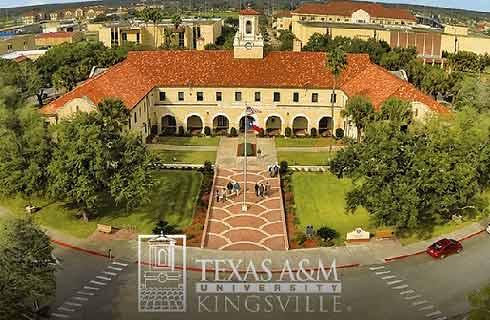理学硕士-设计信息学
MSc Design Informatics

学历文凭
Masters Degree (Taught)

专业院系
School of Informatics

开学时间

课程时长

课程学费

国际学生入学条件
A UK 2:1 honours degree, or its international equivalent, in computer science, informatics, artificial intelligence, physics, engineering, psychology, philosophy, linguistics, or neuroscience.
Your application should show evidence of solid computer programming skills in a programming language; HTML and web design do not count, but relevant mathematical and statistical scripting languages such as R and Matlab do, as do C/C++, Java, Python. This evidence can be either a certificate in a relevant MOOC, or a course in programming that you have successfully passed. If your degree involves a final project, your mark in that project should be a B or higher.
Your personal statement should discuss why you are interested in the programme, as outlined above and on the Institute for Design Informatics website, your background or interest in design, art, and information visualisation, and your relevant programming skills. We’re also looking out for applicants that demonstrate a deep awareness of the social implications of new technologies, and are interesting in studying people’s experiences of data-driven technologies.
IDP—雅思考试联合主办方

雅思考试总分
7.0
- 雅思总分:7
- 托福网考总分:100
- 托福笔试总分:160
- 其他语言考试:PTE Academic: total 70 with at least 62 in each component.
CRICOS代码:
申请截止日期: 请与IDP联系 以获取详细信息。
课程简介
Design Informatics combines data science with design thinking in a context of critical enquiry to create compelling and meaningful new data-driven experiences, products and services. The central premise of design informatics is that data is a medium for design: by shaping data, we shape the world around us. Data science provides the groundwork for this, with design thinking underpinning reflective research through design. Our programme focuses on providing foundational skills on the integration of design thinking and data science with an emphasis on exploring the role of data-driven technologies in society and the potential of such technologies to be a social good. Students are supported to develop an ethically aware, critically reflective technical practice at the interface between data and society by combining theory and research with an open-ended process of making and hacking. What will I learn The programme will provide foundational and advanced knowledge in: Fundamentals of data science and its integration into design processes Case studies of the role of user research, co-design and speculative design in data-driven system design Programming for data visualisation, data physicalisation, physical computing and responsive materials Responsible design and ethics and its application in research and practice You will connect data-driven technology with contexts and domains, such as: Societal challenges and sustainable development goals Health and care Fashion Finance Urban spaces and smart cities You will also look at a host of other real-world contexts through case studies as well as individual and collaborative projects. You will also touch on the ways in which emergent developments in artificial intelligence impact design processes and the ways in which we experience new products and services.
相关申请
 预科
预科 奖学金
奖学金 实习机会
实习机会 在校学习
在校学习 跨境学习
跨境学习 校园授课-线上开始
校园授课-线上开始 在线/远程学习
在线/远程学习
开学时间&学费
学费信息仅供参考,请与IDP联系以获取详细信息
| 开学时间 | 时长 | 学费 | 地点 |
|---|
学校排名

世界排名29
数据源:
泰晤士高等教育世界大学排名
关于爱丁堡大学

爱丁堡大学(The University of Edinburgh),简称爱大,苏格兰之王,全球20强顶尖名校。位于英国苏格兰首府爱丁堡市,创建于1583年,是英语国家中第六古老的大学。《苏格兰启蒙运动》与《苏格兰大学发展研究》提到爱丁堡大学在18世纪曾超越牛津和剑桥而成为引领欧洲学术发展的第一大学。本杰明·富兰克林曾盛赞:“爱丁堡大学拥有许多真正的伟人和从事各种知识研究的教授,这在以往的任何时代、任何国家都从未有过。”爱丁堡大学产生过21名诺贝尔奖获得者、3位英国首相、4位总统和2位总理,并为罗素集团(The Russell Group)、科英布拉集团(The Coimbra Group)及欧洲研究型大学联盟(LERU)成员。达尔文、大卫·休谟、亚当·斯密、麦克斯韦、亚当·弗格森等诸多名家均曾在爱丁堡学习或从事研究。由于其悠久的历史、庞大的规模、卓越的教学质量与科研水平,爱丁堡大学在2015/16年QS世界大学排名中位居全球第21位;在2015/16年泰晤士高等教育世界大学排名中位居全球第24位,声誉排名全球第29位;在2015年维基百科世界大学影响力排名中位居全球第16位;2015/16 ARWU世界学术排名全球第47位。在英国官方每7年发布一次的2014REF英国大学研究排名中,高居全英第4位,仅次于牛津大学、伦敦大学学院和剑桥大学,是英国的超级精英大学。爱丁堡大学有一套严格的录取选拔机制,是英国大学中入学竞争最激烈、申请难度最高的大学之一,录取率仅为8%-10%左右。爱丁堡大学是英国最具规模的院校之一,以其出色而多样化的教学与研究而享誉世界。
本校相关课程

理学硕士-强度和调理
学历文凭
Masters Degree (Taught)
开学日期
课程费用总额


PgDip强度和调理
学历文凭
Graduate Diploma
开学日期
课程费用总额


PGDE-教育专业研究生文凭(小学)
学历文凭
Graduate Diploma
开学日期
课程费用总额


理学硕士-表现心理学
学历文凭
Masters Degree (Taught)
开学日期
课程费用总额


理学硕士-户外环境与可持续发展教育
学历文凭
Masters Degree (Taught)
开学日期
课程费用总额


理学硕士-户外教育
学历文凭
Masters Degree (Taught)
开学日期
课程费用总额

其他相关课程

运动与运动科学学士/信息技术学士
 堪培拉大学
堪培拉大学泰晤士高等教育世界大学排名:470
学历文凭
Dual Degree
开学日期
课程费用总额


综合哲学博士(信息科学)
 伍伦贡大学
伍伦贡大学泰晤士高等教育世界大学排名:247
学历文凭
Ph.D.
开学日期
课程费用总额


信息技术学士(荣誉学位)
 伍伦贡大学
伍伦贡大学泰晤士高等教育世界大学排名:247
学历文凭
Bachelor Degree with Honours
开学日期
课程费用总额


信息技术学士/商科学士
 纽卡斯尔大学
纽卡斯尔大学学历文凭
Dual Degree
开学日期
课程费用总额


游戏技术理学学士
 莫道克大学
莫道克大学泰晤士高等教育世界大学排名:438
学历文凭
Bachelor Degree
开学日期
课程费用总额


计算机与信息技术文凭
 安斯伯利学院
安斯伯利学院学历文凭
Diploma
开学日期
课程费用总额










 英国
英国